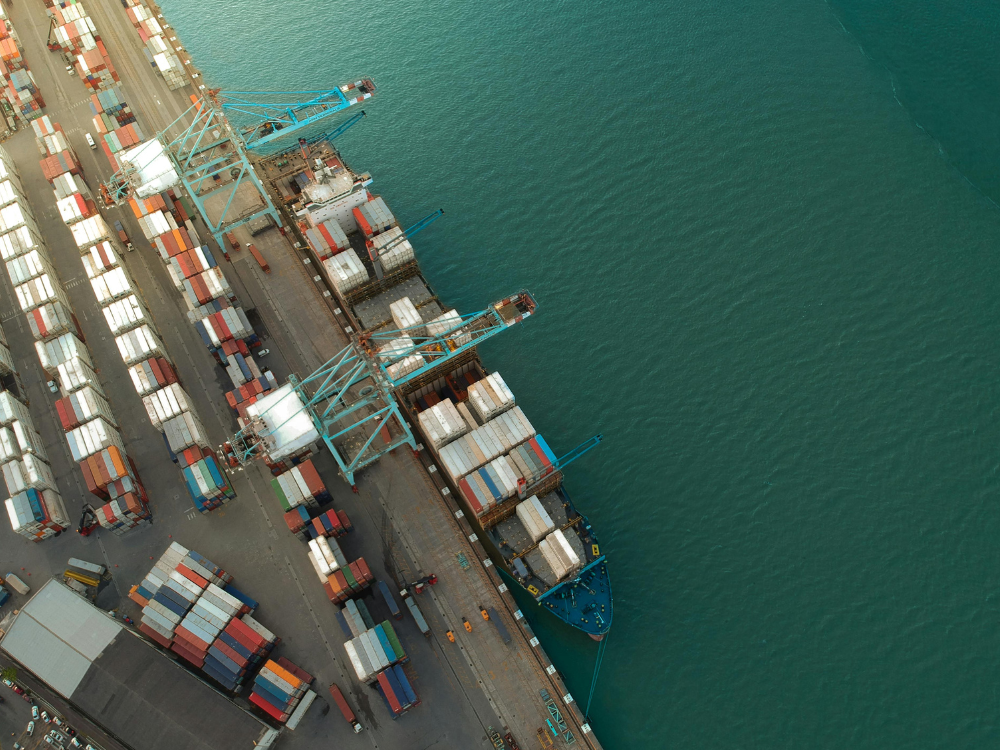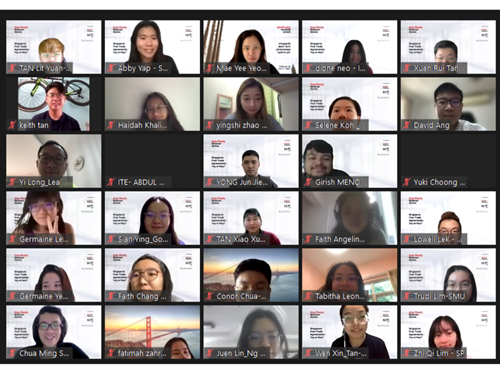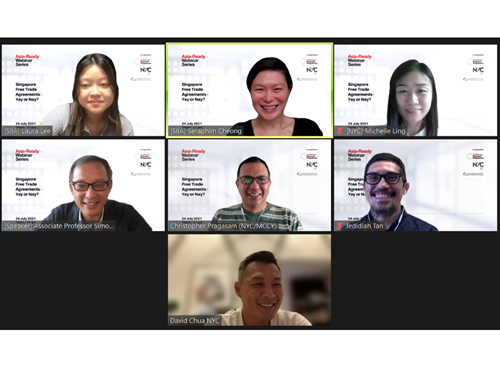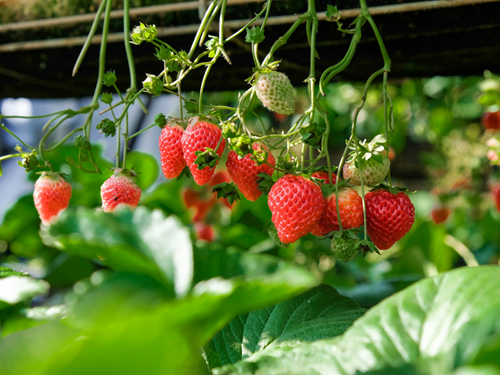How free trade provides opportunities for Singaporean youth
3 August 2021
Global opportunities for Singaporeans to work for multinational companies and gain experience abroad has opened up thanks to free trade.
Written by: Shannon Kuan

In the age of globalisation, free trade agreements have become increasingly common and important.
To understand the importance these agreements play for Singapore, more than 480 youths from the Institute of Technology Education (ITE), Polytechnics, Universities, as well as full-time workers, attended the virtual webinar, titled Singapore Free Trade Agreements – Yay or Nay on Saturday.
It is part of the Asia-Ready Webinar series organised by the National Youth Council (NYC) and Singapore Institute of International Affairs (SIIA).

The session was organised by the National Youth Council (NYC) and the Singapore Institute of International Affairs (SIIA). PHOTO CREDIT: NATIONAL YOUTH COUNCIL
Key points covered by key speaker, associate professor Mr Simon Tay, were Singapore’s policy of openness and engagement with the world, the pros and cons of trade, and what it all means for youths ultimately.

The Singapore Free Trade Agreement (FTA) strategy began in 1999 to expand Singapore’s economic space. PHOTO CREDIT: YOUTUBE/MTIOFSINGAPORE
In Mr Tay’s opening speech, he said: “International trade is part of Singapore’s DNA. It’s a key reason why Singapore as a whole was founded, where many of our forefathers and foremothers migrated here, and is also a key strategy for the future—for your future.”
Trade brings efficiency
To emphasise on the efficiency of free trade, a comparison between two countries with different strengths was brought up.
Mr Tay gave an example of how a country that is well-versed at producing computers can solely focus on it, instead of having to worry about producing other goods such as pineapples.
Meanwhile, another country that is skilled at producing pineapples but not computers, can then trade their goods to rationally and cost-effectively maximise their talents.
This way, a win-win situation is created where both countries can benefit while remaining a specialist in their own domain.
Introducing challengers from supply chains
Before international trade was introduced, the market was more limited.
As Singapore has limited land, people and seasons, free trade has allowed us to attain seasonal goods we would not be able to produce alone such as certain fruits that only grow in specific weather conditions.

An example Mr Tay said was how Singapore can get strawberries almost all year round due to international trade with other countries. PHOTO CREDIT: PIXABAY VIA PEXELS
“As a country that produces only a limited number of goods – Singapore clearly is more limited than others – we as consumers benefit so much by having access to the world’s markets,” Mr Tay said.
Efforts to minimise negative environmental impact of trade
Mr Tay asked if the trade in goods across the world – taking into account travel costs, production process and more – undermines environmental protection and the efforts to stop climate change.
Haze has been an annual issue for Singapore due to the mass burning of forests in Indonesia for pulp, paper and palm oil. While these industries are salient for its production of useful goods and economy for the people, we need to ensure these are produced sustainably.
Mr Tay stated: “When we trade, environmental responsibility comes in. One of the ways to do that, as a trader and financier, is to examine what happened in the production (process)… to ask whether it was produced sustainably.
“And I’m pleased to tell you that over the last few years, the movement towards sustainable production of these goods has increased. The emphasis has been redoubled, not only by consumers, but by financiers and banks… and the big companies that buy (such products).”
A new opportunity to curb such environmental problems has also arisen: Nature-based solutions.

By locking in carbon from the atmosphere through conserving and regrowing areas of forests, mangroves and other land; no fires or haze is created. PHOTO CREDIT: FELIX MITTERMEIER VIA PEXELS
There is now a move towards creating carbon credits, where people who buy land for conserving and regrowing forests can receive investments. Thus, instead of making money from burning forests, people can make money by helping forests thrive.
Mr Tay highlighted the launch of Climate Impact X (CIX) this year in Singapore, which focuses on creating a new financial instrument, carbon credits, that can be bought, sold and traded digitally to help conserve forests and stop climate change.
“The problem of trade can then be flipped around to connect to a solution to a real problem facing the environment,” he said.
Ensuring humane labour laws
Mr Tay also firmly stated that people matter too. Trading in goods means that you are also trading in someone else’s work.
This is where labour and human rights come into play, as we should not indirectly go against human rights and labour rights by being complicit in helping a company profit from discrimination and abuse.
An issue he brought up was that many industries still rely on a lot of labour, such as glove making in Malaysia and fishing in Thailand, Vietnam, Cambodia and more. In many of these cases, labour is fair, but there are instances where nearly slave-like conditions exist.
“In some of the illegal fishing, we find that people have been abducted and then literally chained to boats far at sea. They’re not given a chance to resign… they’re literally told that if they don’t (comply), they’ll be killed and dumped at sea!” Mr Tay exclaimed.
While this kind of modern slavery is heinious, it is sadly still going on in the region. Mr Tay believes it is the responsibility of consumers to single out such inhumane companies and stop buying their products.

One could always research where they purchase their goods from first, and how these companies treat their own workers. PHOTO CREDIT: MICHAEL BURROWS VIA PEXELS
He said: “I’m glad to see that there is a movement among banks and other nature institutions to try to seize these problems and stop investing in these companies.”
The possible impact on job opportunities for locals
A question Singaporeans have raised regarding FTA, especially about the Comprehensive Economic Cooperation Agreement (CECA), is whether it is truly beneficial for local citizens regarding job opportunities.
To this, Mr Tan responded: “If we favour our citizens too much, we will become inefficient. Worse, there may be jobs where nobody knows how to do it. Of course, if we open up too fast or too cheaply, then our own citizens won’t feel the benefit of those arrangements—free trade and employment arrangements.
“It’s a real balancing point, and is a question of fairness and rationality against favouritism… who’s to be favoured? The citizen or the non-citizen?”
The growth of our digital economy has outstripped the number of Singaporeans that can and want to do certain types of work.
“In terms of looking at the free trade agreement called CECA… the government is correct. The agreement does not open the doors widely for any foreigner from South Asia, India, to just walk in the door. They still have to go through all the various processes just like any other country. There are no special passes for being a PMET.”
Global and regional engagement
Mr Tan is an avid believer of how Singapore’s FTA can bring benefits through being open to other countries.
With more global opportunities for Singaporeans to work for multinational companies, he believes that it can expose citizens to a range of experiences abroad, as well as different ways of thinking and training.
In his closing message, Mr Tan emphasised on how trade has shaped Singapore from way back in the past.
“Historical antecedents from the days of tall, sailing vessels… and they brought a lot of trade to our region before Raffles got here. One of the products they brought has become so fundamental to our daily lives, I don’t think we can imagine life without it. But there was a time where the first chillis… came from South America. And that’s one of the benefits of free trade.
“Things go across the world and sometimes, they anchor and become so important to us, we could never imagine a life where there wasn’t that product, whether it’s chilli… or whether it is the fact that Singapore that started as a trading hub, has now become a home.”
